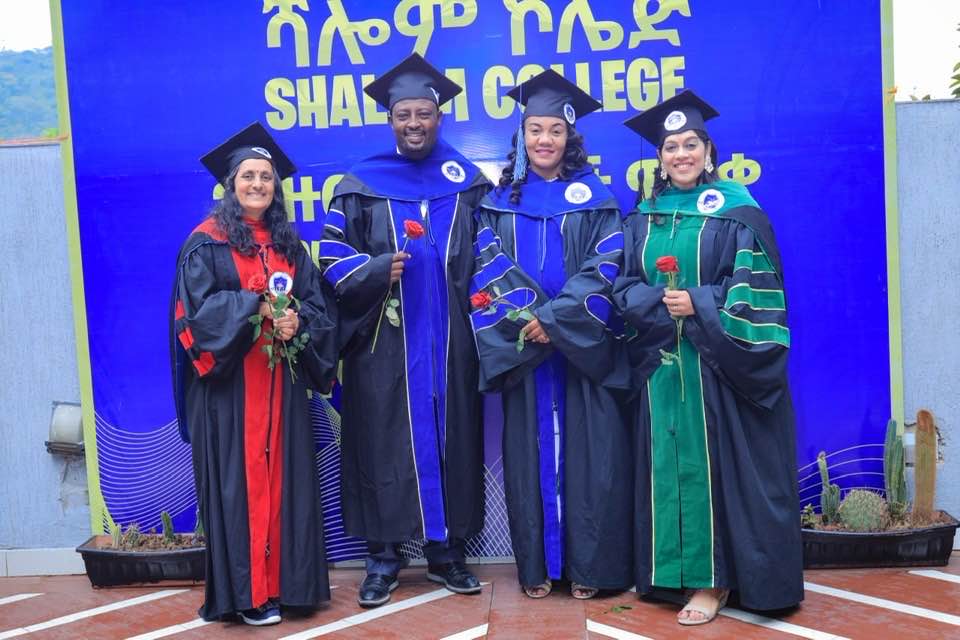
Shalom College "🏆🎉🎇 congratulations 🏆🎉🎇"

Shalom College "🏆🎉🎇 congratulations 🏆🎉🎇"

Shalom College "🏆🎉🎇 congratulations 🏆🎉🎇"

Shalom College "🏆🎉🎇 congratulations 🏆🎉🎇"
HIGHER OFFICIALS



This course focuses on the basic concepts and principles of management, the functions of planning, organizing, staffing, directing and controlling, and their relationships to key issues in management practices, such as leadership and motivation. Decision making and effective communication are also discussed.
Course Description Nothing is more persistent in our life than change. From our childhood we experience permanent change in our life, in the communities’ webelong to, in the organizations we work and in the environment we live as well. Yet, it is one decision that management finds difficult to make and implement- and when a change is made, it is often one of the most resisted decisions by employees though it is inevitable. Organizations that handle change well thrive, while those that don’t adapt themselves to change become history. Therefore, to be effective and efficient enough, managers must anticipate and prepare for the change. To equip you, the near future practioners and academicians, this course encompasses various stop ics including the overview of change management, the nature of change, theories of Change ,approaches to managing organizational change, emerging trends in change management, managing the people issue, the link between change, stress and conflict.
Course Description Operations Management the heart of all management disciplines which bring competitive advantage and market focus for all business organization. Thus, the course covers Meaning of operations and production management, operations management as competitive weapon, product and service design, quality and quality control, capacity planning, location decision, layout decision, aggregate planning, scheduling, work design, and time-based operations.
Course Description This course is devised in the way that both economic theories and mathematical tools which are critical in making decisions to resolve managerial problems irrespective of the fact that they are of either profit oriented, non-profit oriented, private, public, large, or small organizations and/or institutions. The course, having the set of mathematical techniques and economic theories and principles, will give students a deeply grounded insight on such matters as to what combination of those theories and techniques should they employ in what situations in making attempts to address managerial problems. This course deals with features of market structure and decision making, business and economic forecasting, econometric model of input output analysis, optimization theory, basic estimation techniques, and pricing of goods and services, which helps to promote the development of analytical and critical thinking skills of students.
Course Description Project analysis and Management involves systematically incorporating the interests of customers, creating a disciplined way of prioritizing efforts and resolving tradeoffs, working concurrently on all aspects of the project in multifunctional teams and downstream activities. To this end, the course is designed to teach students the fundamentals of project formulations, appraisal, executive, planning and analysis of projects, the project cycle, market and demand analysis, raw material and supply study, location, site, and environmental assessment, production plan and plant capacity, technology and engineering study, financial & economic analysis , appraisal criteria, project financing, documentation, implementation monitoring and evaluation.
Course Description This course is devoted to identifying and describing the various strategies a company can pursue to achieve superior performance. Many of these strategies are generic – that is, they apply to all organizations, large or small, manufacturing or service, and profit seeking or not for profit. The central aim of this course is to give a thorough understanding of the analytical techniques and skillsnecessarytoidentifyandexploitstrategiessuccessfully.Specifically,thecoursecovers;the meaning & role of strategic management, natuk2re of strategic management, strategy formulation &implementation, environmental scanning, understanding of corporate, competitive functional and operating level strategies, strategy implementation, evaluation and control and also social and ethical responsibilities of corporate management.
An MBA thesis refers to a research project or academic paper that students pursuing a Master of Business Administration (MBA) degree are typically required to complete. It serves as a culmination of their studies and demonstrates their ability to apply their knowledge and skills to a real-world business problem or topic.
The process of writing an MBA thesis typically involves the following steps:
1. Topic Selection: Choosing a research topic that aligns with your interests, career goals, and the requirements of your program. It's important to select a topic that is relevant, feasible, and has enough available information and resources for research.
2. Literature Review: Conducting a comprehensive review of the existing literature related to your topic. This involves reading and analyzing academic articles, books, and other relevant sources to understand the current state of knowledge and identify research gaps.
3. Research Methodology: Determining the appropriate research methodology for your study, such as qualitative, quantitative, or mixed methods. This includes selecting data collection methods, such as surveys, interviews, or data analysis, and outlining your research design.
4. Data Collection and Analysis: Collecting and analyzing data to answer your research questions or test your hypotheses. This may involve conducting surveys, interviews, experiments, or analyzing existing datasets. Statistical analysis or qualitative analysis techniques may be used, depending on the nature of your research.
5. Results and Findings: Presenting and interpreting your research findings in a clear and concise manner. This includes summarizing and analyzing the data, discussing the implications of your results, and drawing conclusions based on your research.
6. Discussion and Conclusion: Reflecting on the significance and implications of your research findings. This involves discussing the limitations of your study, suggesting areas for further research, and providing recommendations based on your findings.
Course Description This course aims at giving an exposure to the real time marketing activities. It demonstrates the role of marketing in various industries; to explore the relationship of marketing with other management areas; and to show how effective marketing builds on a complete understanding of marketing techniques. The main focus will be on marketing conceptual framework, the marketing environment, types of markets, product decision, product development, branding and packaging, pricing decisions, factors influencing' pricing, pricing techniques, distribution decision: channel and physical distribution decision, promotion decision: types of promotional messages and media.
Course Description Human Resource management belongs to all organizations. Its focal point is people; people are the lifeblood of organizations. Hence, this course is designed to offer conceptual framework and insights that can be used in managing this human resource. It emphasizes on: overview of HRM (emerging HR challenges; changing role of HR; the evolution, importance, scope and component of HRM), human resources planning and development, attracting the talent (recruitment, selection of personnel), induction, placement, training and development; performance planning and appraisal; wage and salary administration and/or the human factor in work design & compensation plans & incentive schemes (reward system); morale and motivation; discipline; maintenance and safety; industrial relations; collective bargaining; grievances and grievance handling; HRM in multinational (& transitional) enterprises. It also focuses on newly emerging issues of Human resource like diversity and its management, empowerment, HIV/AIDS and the workplace.
Course Description This course deals about concepts and conventions, and analytical issues of financial and managerial accounting. It exposes students to the environment of accounting and its role in providing useful information for decision making by various stakeholders of business organizations. By the end of the course, students should be able to appreciate the role, scope and value of information for managing business organizations towards achieving their goals. This course is designed to introduce students to the assumptions, principles, and practice of financial accounting. The course content consists of a mix of descriptive material, financial accounting rules, and the application of these rules to various business situations. Topics include a detailed discussion of the accounting cycle, accounting for assets, liabilities, and shareholders’ equity, and financial statement analysis. The course is part of the foundation for all advanced business school classes, and as such is of great importance for building a successful business career.
Course Description Operations Research (OR) as one of the quantitative aid to decision making offers the decision- maker a method of evaluating every possible alternative (act or course of action) by using various techniques to know the potential outcomes. It includes Models and modeling, linear programming, transportation models, assignment models, decision models, project management techniques, and queuing models
Course Description Most organizations today are in the process of designing, developing and implementing numerousinformationtechnologies(IT)basedsystemstosupportemployeesintheir decision-makingtasks.Successfullyachievingthisobjectiverequiresanunderstanding not only of the hardware, software and design aspects of such a System or of the complex mathematicalandstatisticalmodelsthatarefundamentaltoaDSS'sclaimofsuperior decisions,butalsoofhumandecision-makingandtheorganizationalcontextwithin which decisions are made. This course provides an overview of information systems in the business world. It is intended to provide students in the MBA program with affirm grasp of the function of computer-based information systems in modern business organizations. It presents an organizational view of how to use information technology to create competitive firms, manage global organizations, and provide useful products and services to customers.
Course Description The objective of the course is to familiarize the student with the international environment, the impact of diversity of culture on international and global trade. The factors that influence international business and the way of sourcing resources from the international markets, the way how human resource may be recruited for the international business. This course also focuses on the value of interactions in international business and its consequent impact on international trade relationships, a broader perspective espouses that international relationships should be the paradigm of business. The impact of MNCs on trade will be discussed under this topic.
This course is a survey course intended to develop the students’ ability in scientific analysis and to provide opportunity for application of concepts and tools in the study of economic and social problems. It also gives students a preliminary knowledge with the art of using different research methods, techniques in solving research problems. Specifically, it covers scientific inquiry; experimentation; survey; fact finding, design of questionnaire and interpretation of data; and formulation of management research project by students.
Course Description The course organizational behavior is a field of study that investigates the impact those individuals, groups and organization structure has on behavior within organizations; and the application of this knowledge to improve productivity and job satisfaction in an organization. Organizational behavior uses systematic study to improve behavior so as to increase productivity and employee satisfaction. This course deals with theories of organizations, environment and organizational goal setting, organizational Behavior, individual attitude and perceptions, individual and group attributes in organizational behaviors, group dynamics, group and team formation, power and politics, conflict, and conflict management.
Shalom Business and Technology College celebrated Christmas with underprivileged people who made their living on the streets!
It is allowed to participate for our students
Advertisement
1st National Academic Conference
National Research Conference.
3rd Convocation (Graduation)
Shalom news (national research conference)
Research Workshop on March 03-2024




HIGHER OFFICIALS


